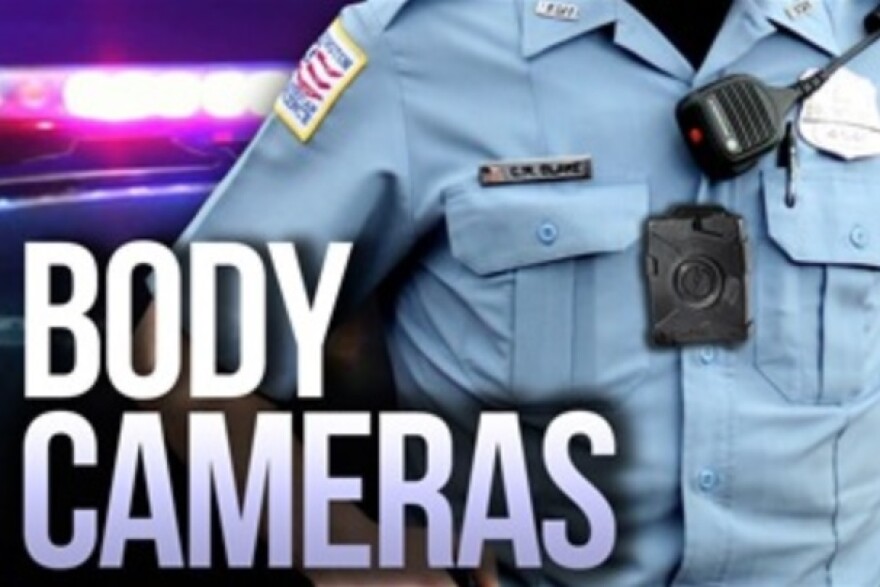A body cameras bill is starting to move through the House and Senate. But, some lawmakers want another measure to move forward that mandates officers use the cameras at all traffic stops, citing a high profile South Florida death.
The story of Corey Jones
Since the October 2015 death of Corey Jones, there’s been a lot of speculation over what happened. One thing no one disputes: He was shot multiple times by a plainclothes officer, while on the side of the road.
“An unidentified, uniformed, undercover police officer approached him at 3 in the morning while he was broke down on the side of the road on the phone with a tow company, and for inexplicable reasons, Corey Jones is dead,” said Benjamin Crump, a lawyer for Jones’ family.
While the officer since identified as Nouman Raja maintained he told Jones he was a policeman, prosecutors released audio recordings of the roadside assistance call in January of this year that tell a different story.
It starts off with Raja asking how Jones is doing and then suddenly telling him to put his hands up. Later, the roadside assistance operator on the phone with Jones can be heard as well, after shots are fired.
“I'm good. Yeah, I'm good," Jones said, after Raja approached him.
“Really,” Raja asked.
“Yeah,” Jones replied.
“Get your f---ing hands up! Get your f----ing hands up,” Raja started screaming, suddenly.
“Hold on! Hold on,” said Jones.
"Get your f----ing hands up! Drop!" Raja yells again.
"Oh my gosh,” said the operator, after hearing the shots.
Kattie Jones—Corey’s stepmother—says it’s been very hard on the family.

“Had body cameras been place when our son was killed, we’d have answers to our granddaughters that are asking us, ‘when is Uncle Corey coming home? Why can’t Uncle Corey come home,’” she said, about a year ago.
Following Jones’ death, Palm Beach Gardens Police Department started using body cameras.
“I applaud Palm Beach Gardens for doing that because they saw an issue and they resolved it,” said Rep. Al Jacquet (D-Lantana). But, what would have happened if they already had body cameras?”
Jacquet says he believes Corey Jones would probably still be alive today if body cameras had been in place at the time.
“If that officer who was not in uniform, in an unmarked vehicle, who pulled up and did not identify himself as a police officer, had he had a body camera on, I think he would have thought twice about the way he approached Corey Jones,” he added. “I think his training would have been in the back of his mind to show that, ‘hey, I’m on camera. I need to make sure I observe the guidelines of my training.”
New Body Camera legislation
Now, Jacquet is pursuing a bill that he says would not only help residents, but the officers as well. It requires law enforcement officers who do routine traffic stops to wear body cameras.

“This bill protects them whose lives are in danger, maybe 3 in the morning, they don’t know who they’re pulling over, making sure that we are deterring any attack, any assault on our officers and making sure that we can clear their names as well,” he continued. “When you look at the statistics, that 53 percent of reports of reports of excessive force were 53 percent less after those cameras were used. 93 percent of complaints against our officers…once those complainants found out that the officer had a camera, they dropped their complaint. This is significant.”
Jacquet hopes his House bill will get heard this year. Its Senate companion measure by Sen. Bobby Powell (D-West Palm Beach) has a better chance of getting its first hearing since the Senate Criminal Justice Chairman is fellow Democrat: Sen. Randolph Bracy (D-Ocoee). Both bills could draw opposition from law enforcement agencies since it’s a mandate. Today, it’s up to the agency if they want to have body cameras.
Other Body Camera Bills
Meanwhile, a body cameras bill that’s already moving in the House and Senate is drawing concerns from some lawmakers. Supported by law enforcement groups, the bill allows officers to review their body camera footage before writing a report or making a statement. Matt Puckett is with the Florida Police Benevolent Association.
“We live in a different world now, and officers make small mistakes,” said Puckett. “They approach from the right, but their report says they approached from the left or maybe the suspect or the witness may get the color of the shirt wrong. Those little things trip up cases. They’re technicalities, in some cases, but they can really destroy a case.”
But, lawmakers, like Sen. Jeff Brandes (R-St. Petersburg), have some concerns about what happens in high profile incidents.
“It’s one thing if it’s a minor traffic stop, ‘I want to review. I’m concerned about this.’ It’s another thing if it’s a very serious act that occurs and all of sudden you get a replay in your recollection. Obviously, the other side doesn’t get a replay in its recollection, up until it goes to trial.”
The Senate bill’s next stop is the Senate Judiciary Committee—a panel bill sponsor Sen. Greg Steube (R-Sarasota) chairs. He says by the next stop, he hopes to work out those concerns.
For more news updates, follow Sascha Cordner on Twitter: @SaschaCordner.






